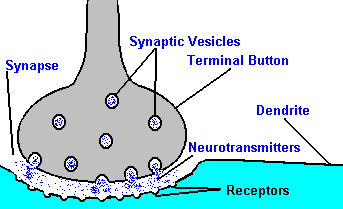| iPsychology
|
|
Paroxetine ( Paxil )
Paxil is a selective serotonin reuptake inhibitor (SSRI) used to treat depression, panic attacks, obsessive compulsive disorder (OCD), social anxiety disorder (social phobia) and generalized anxiety disorders (GAD). SSRIs work by helping to restore the balance of certain natural substances in the brain (neurotransmitters). This medicine is a selective serotonin reuptake inhibitor (SSRI) used to treat depression, panic attacks, obsessive compulsive disorder (OCD), social anxiety disorder (social phobia) and generalized anxiety disorders (GAD). SSRIs work by helping to restore the balance of certain natural substances in the brain (neurotransmitters). Paroxetine may also be used to treat a variety of other conditions as determined by your doctor including severe premenstrual syndrome (premenstrual dysphoric disorder), sexual problems in men (premature ejaculation), nerve problems associated with diabetes (diabetic neuropathy), chronic headaches, or post-traumatic stress disorder (PTSD). Some medicines or medical conditions may interact with this medicine. INFORM YOUR DOCTOR OR PHARMACIST of all prescription and over-the-counter medicine that you are taking. DO NOT TAKE THIS MEDICINE if you are also taking another paroxetine-containing product; fenfluramine; dexfenfluramine; astemizole; terfenadine; clozapine; thioridazine; selegiline; sibutramine; tramadol; or monoamine oxidase inhibitors (MAOIs) including furazolidone, linezolid, moclobemide, phenelzine, procarbazine, selegiline, isocarboxazid, or tranylcypromine. ADDITIONAL MONITORING OF YOUR DOSE OR CONDITION may be needed if you are taking aripiprazole, cyproheptadine, lithium, metoclopramide, weight-loss medicines, nonsteroidal anti-inflammatory medicines such as ibuprofen or naproxen, atomoxetine, risperidone, "triptan" medicines for migraines such as sumatriptan, trazodone, or tricyclic antidepressants. DO NOT START OR STOP any medicine without doctor or pharmacist approval. Inform your doctor of any other medical conditions including seizures, allergies, pregnancy, or breast-feeding. Contact your doctor or pharmacist if you have any questions or concerns about taking this medicine. STORE THIS MEDICINE at room temperature at 77 degrees F (25 degrees C) in a tightly-closed container, away from heat and light. Brief storage between 59 and 86 degrees F (15 and 30 degrees C) is permitted. CONTINUE TO TAKE THIS MEDICINE even if you feel better. Do not miss any doses. IF YOU MISS A DOSE OF THIS MEDICINE and you are taking it in the morning, take it during the afternoon if you remember. If you do not remember until the next morning, skip the missed dose and go back to your regular dosing schedule. IF YOU MISS A DOSE and you are taking 1 dose daily at bedtime and do not remember until the next day, skip the missed dose and go back to your regular dosing schedule. Do not take 2 doses at once. AT LEAST 1 TO 2 WEEKS, and sometimes up to 4 weeks, may pass before this medicine reaches its full effect. THIS MEDICINE IS NOT RECOMMENDED for use in children or adolescents under 18 years of age. IT IS IMPORTANT THAT ALL PATIENTS, including those under 18, consult with their doctor before stopping this medicine. DO NOT SUDDENLY STOP TAKING THIS MEDICINE without checking with your doctor. THIS MEDICINE MAY CAUSE drowsiness. Do not drive, operate machinery, or do anything else that could be dangerous until you know how you react to this medicine. DO NOT DRINK ALCOHOL while you are taking this medicine. BEFORE YOU BEGIN TAKING ANY NEW MEDICINE, either prescription or over-the-counter, check with your doctor. FOR WOMEN: IF YOU PLAN ON BECOMING PREGNANT, discuss with your doctor the benefits and risks of using this medicine during pregnancy. THIS MEDICINE IS EXCRETED IN BREAST MILK. IF YOU ARE OR WILL BE BREAST-FEEDING while you are using this medicine, check with your doctor or pharmacist to discuss the risks to your baby. SIDE EFFECTS, that may go away during treatment, include nervousness, trouble sleeping, drowsiness, fatigue, weakness, nausea, vomiting, diarrhea, loss of appetite, dry mouth, sweating, dizziness, lightheadedness, or changes in sexual function. If they continue or are bothersome, check with your doctor. CONTACT YOUR DOCTOR IMMEDIATELY if you experience mental or mood changes, seizures, or unusual bleeding or bruising. FOR MEN: If you experience a prolonged, painful erection, stop using this medicine and seek immediate medical attention or permanent problems could occur. AN ALLERGIC REACTION to this medicine is unlikely, but seek immediate medical attention if it occurs. Symptoms of an allergic reaction include rash, itching, swelling, dizziness, or trouble breathing. If you notice other effects not listed above, contact your doctor, nurse, or pharmacist. Interactions
How it works: Inhibits the uptake of serotonin.
[1] [2] Previous Page |

